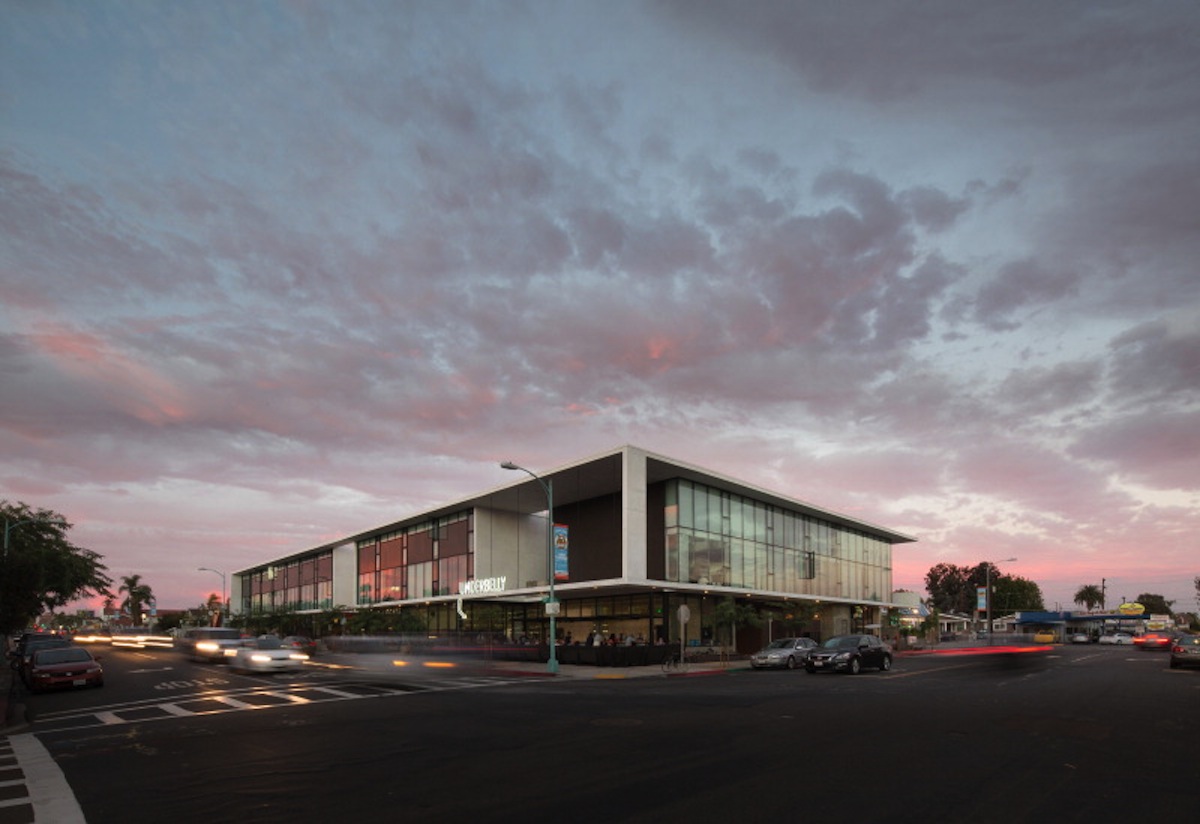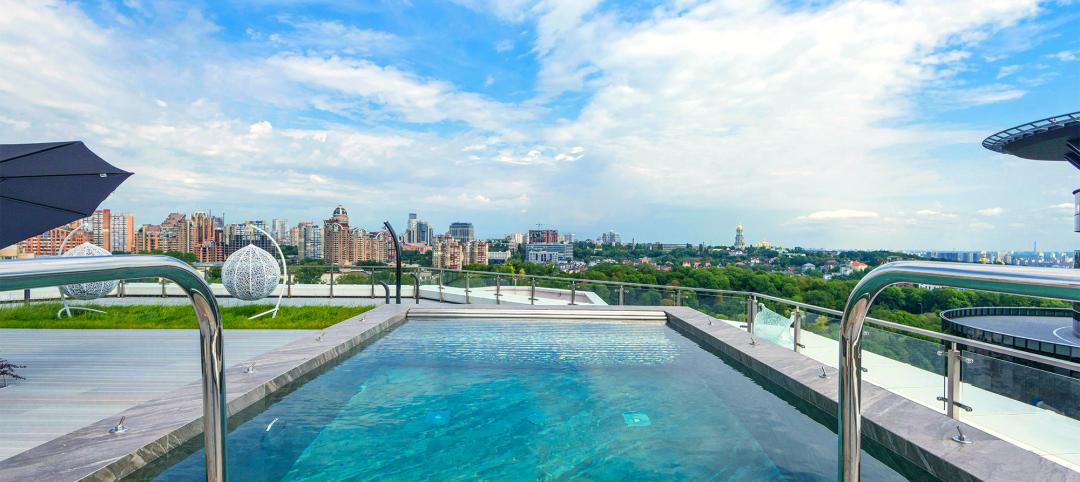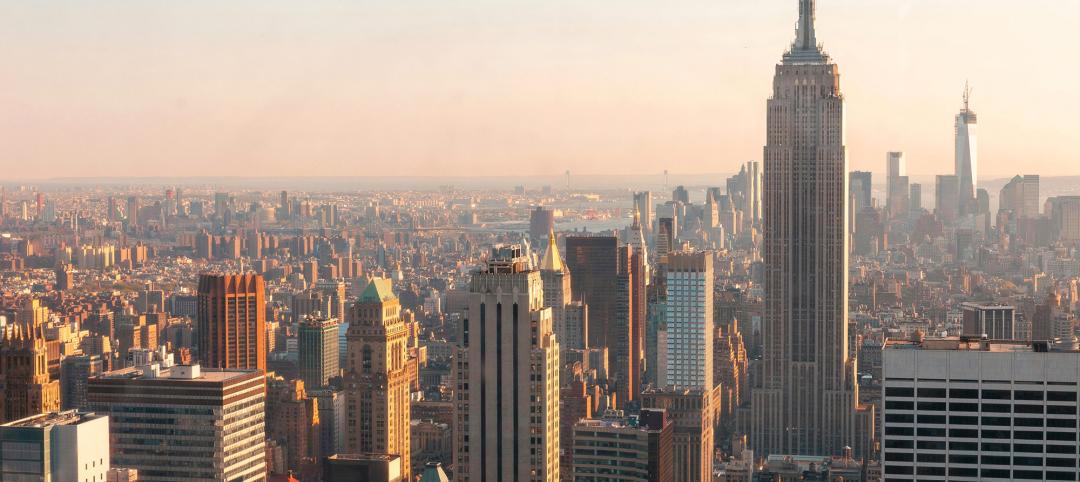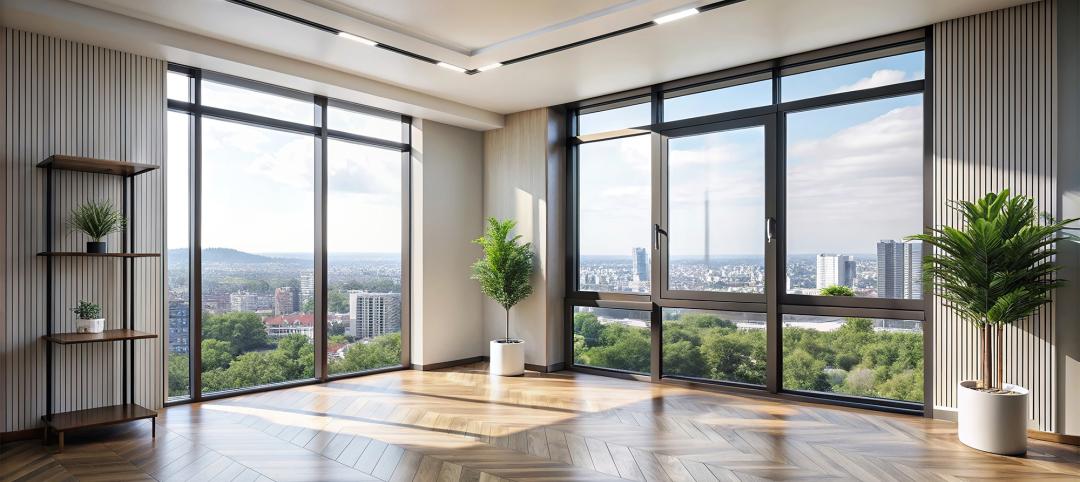The American Institute of Architects (AIA) selected the winners of its 2015 Housing Awards. The competition honored 10 projects across the country, including three affordable projects in the Multifamily Housing category.
The Multifamily Housing award recognizes outstanding apartment and condominium design. Aside from the architectural design features, the jury chose buildings based on context, transportation options, and features that contirubte to livable communities.
The three multifamily winners are:
Bayview Hill Gardensm, San Francisco
David Baker Architects
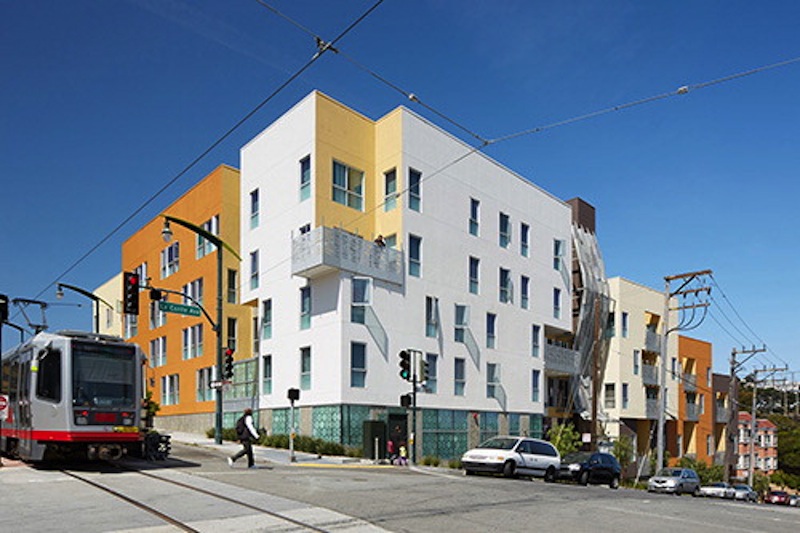 Image: Bruce Damonte and Matt Edge
Image: Bruce Damonte and Matt Edge
After years in the development pipeline, this bright new building now replaces a crime-ridden site with safe and stable homes. This is the only building dedicated to formerly homeless families in its neighborhood, which has the second highest homelessness rate in the city. Its opening moved many families off waiting lists for overtaxed shelters and has reduced pressure on emergency services.
The new secure building brings 73 homes, positive energy, and "eyes on the street" to the neighborhood. Formerly homeless families and transition-aged youth are provided stable new homes with "welcome kits" of furnishings and supplies. A comprehensive range of support services, including child-specific programs are offered in the building's convenient on-site offices. The 115 kids living in the building receive healthy snacks, homework help, after-school care, and chaperoned field trips.
In the central courtyard, 8,500-square-foot urban garden with fruit trees, vines, and planting beds allows residents to grow their own food and get their hands dirty. Varied-height planters accommodate people's differing relationships to the gardening beds - for adults, teens, children, and those with mobility differences - as well as providing places to rest or socialize in the garden court. A local gardening non-profit oversees this "edible landscape," with residents providing the daily garden care.
By providing increased safety and increased housing capacity and density as well as on-site social and vocational services for residents, the development supports residents and fosters the cultural and economic diversity of the neighborhood.
David Baker, FAIA, was the associate architect, interior designer was David Baker Architects, and OLMM Consulting Engineers served as the structural engineer on the project.
Broadway Affordable Housing, Santa Monica, Calif.
Kevin Daly Architects
 Image: Iwan Baan
Image: Iwan Baan
The objective of Broadway Housing is to provide low-income families with affordable housing that is both environmentally and economically sustainable in an urban area with a serious lack of available affordable housing options.
The primary population served by this project is low-income families earning between 30% and 60% of Area Median Income. The property consists of 2- and 3-bedrom units with rents ranging from about $560 to $1,300 per month. A market study was conducted to demonstrate the need for these units in the city. The market study determined that there was a need for 7,931 2-bedroom units serving this income range and 6,725 3-bedroom units within the west side of Los Angeles.
The property's convenient regional and local access and proximity to services make the subject site particularly attractive for the construction of affordable apartments. The complex offers residents two community rooms run by the Boys & Girls Club, computer room, laundry facility, open areas with landscaping and fruit trees, a picnic area, and an on-site manager.
Associate architects on the project were Tom Perkins, Kody Kellogg, Jason Pytko, Gretchen Stoecker, and JAred Ward. TK1SC was the mechanical engineer and John Labib & Associates was the structural engineer.
The North Parker, San Diego
Jonathan Segal, FAIA
 Image: Matthew Segal
Image: Matthew Segal
The North Parker project is now the southern gateway to the newest transitioning neighborhood in San Diego. The corner of 30th Street and Upas Street, previously blighted with decaying structures and a propensity towards vagrants, is now a community gathering point.
The affordable housing project houses 27 units on the floor above the ground plane and four commercial spaces, which consist of two restaurants, a beer-tasting bar, and an architectural office all engaging and interacting with each other. The street level façade recedes into the property, forming outdoor community gathering and interaction spaces serving the retail, thus opening the property completely to the community.
As you move through the project, a true sense of pedestrian-scale and community interaction is evident, as you notice the garden courtyard, private decks, and circulation paths interwoven through the project. There are no gates or boundaries. There are no double-loaded corridors.
The public and constant pedestrian flow secures the property naturally. Public people can move freely throughout the entire property, only limited by low physical boundaries when approaching the individual units. Multiple entrances through different nodes of the project allow you to transfer between the commercial ground plane along the street, to the interior garden and courtyard space and then up the stairs to the second level residential circulation path.
Tenants enter their units through semi-private exterior patios raised two feet above the adjacent public walkway. These raised patios allow for a sense of privacy while maintaining visual connection to the central court, further enhancing the sense of community. Upon entering your private space, you are allowed an unobstructed visual connection all the way through the unit with floor-to-ceiling glazing the full width of the unit peeking straight into the urban public landscape.
DCI Engineers served as the project's structural engineer and SeaBright Company was the civil engineer.
To read the full list of winners from the 15th annual AIA Housing Awards, click here.
Related Stories
Student Housing | Jun 20, 2024
How student housing developments are evolving to meet new expectations
The days of uninspired dorm rooms with little more than a bed and a communal bathroom down the hall are long gone. Students increasingly seek inclusive design, communities to enhance learning and living, and a focus on wellness that encompasses everything from meditation spaces to mental health resources.
MFPRO+ News | Jun 20, 2024
National multifamily outlook: Summer 2024
The multifamily sector continues to be strong in 2024, even when a handful of challenges are present. That is according to the Matrix Multifamily National Report for Summer 2024.
Multifamily Housing | Jun 17, 2024
Elevating multifamily properties through quiet luxury
As the demands of urban living continue to evolve, the need for a tranquil and refined home environment has never been more pronounced.
Multifamily Housing | Jun 14, 2024
AEC inspections are the key to financially viable office to residential adaptive reuse projects
About a year ago our industry was abuzz with an idea that seemed like a one-shot miracle cure for both the shockingly high rate of office vacancies and the worsening housing shortage. The seemingly simple idea of converting empty office buildings to multifamily residential seemed like an easy and elegant solution. However, in the intervening months we’ve seen only a handful of these conversions, despite near universal enthusiasm for the concept.
Adaptive Reuse | Jun 13, 2024
4 ways to transform old buildings into modern assets
As cities grow, their office inventories remain largely stagnant. Yet despite changes to the market—including the impact of hybrid work—opportunities still exist. Enter: “Midlife Metamorphosis.”
Affordable Housing | Jun 12, 2024
Studio Libeskind designs 190 affordable housing apartments for seniors
In Brooklyn, New York, the recently opened Atrium at Sumner offers 132,418 sf of affordable housing for seniors. The $132 million project includes 190 apartments—132 of them available to senior households earning below or at 50% of the area median income and 57 units available to formerly homeless seniors.
MFPRO+ News | Jun 11, 2024
Rents rise in multifamily housing for May 2024
Multifamily rents rose for the fourth month in a row, according to the May 2024 National Multifamily Report. Up 0.6% year-over-year, the average U.S. asking rent increased by $6 in May, up to $1,733.
Apartments | Jun 4, 2024
Apartment sizes on the rise after decade-long shrinking trend
The average size of new apartments in the U.S. saw substantial growth in 2023, bouncing back to 916 sf after a steep decline the previous year. That is according to a recent RentCafe market insight report released this month.
Multifamily Housing | Jun 3, 2024
Grassroots groups becoming a force in housing advocacy
A growing movement of grassroots organizing to support new housing construction is having an impact in city halls across the country. Fed up with high housing costs and the commonly hostile reception to new housing proposals, advocacy groups have sprung up in many communities to attend public meetings to speak in support of developments.
MFPRO+ News | Jun 3, 2024
New York’s office to residential conversion program draws interest from 64 owners
New York City’s Office Conversion Accelerator Program has been contacted by the owners of 64 commercial buildings interested in converting their properties to residential use.


